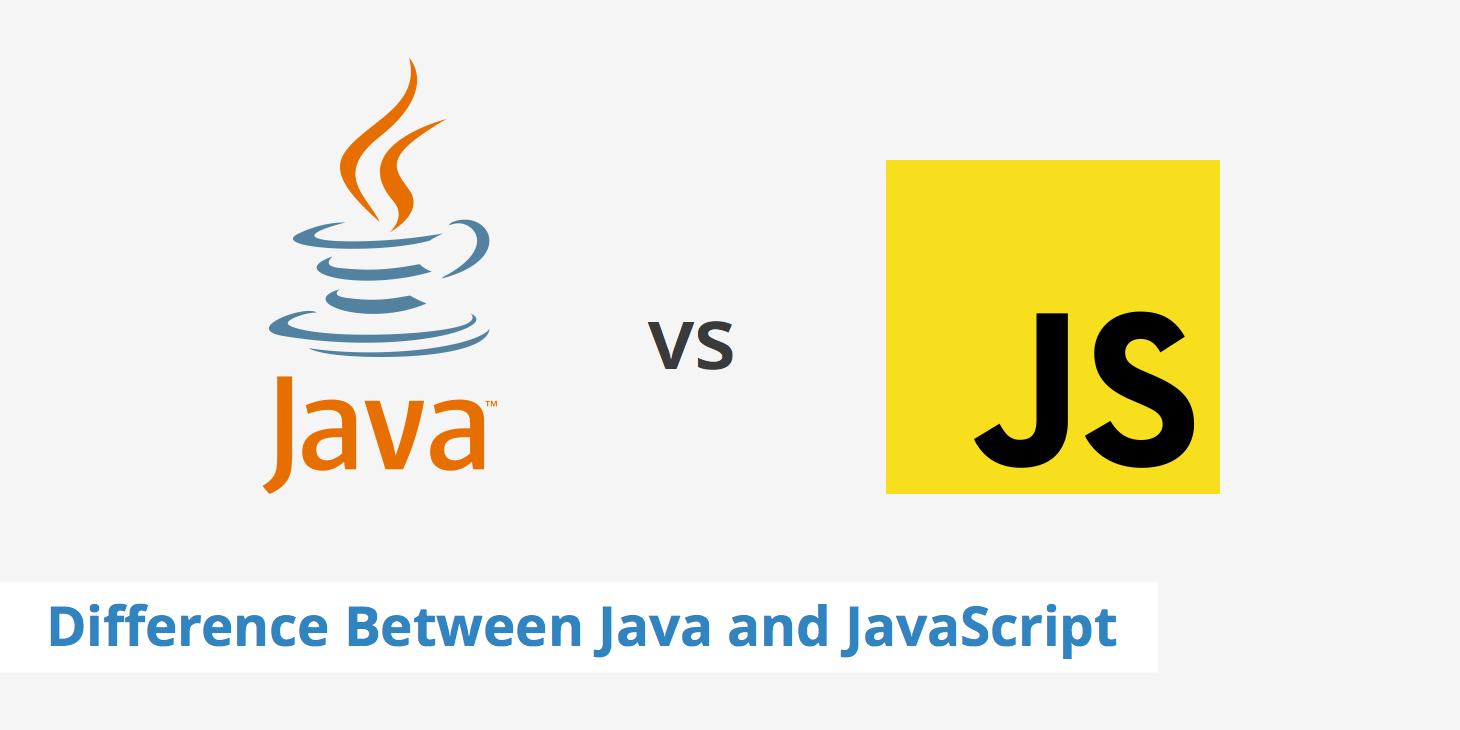What Is the Difference Between Java and JavaScript?

If you're new to the world of programming, then you may still be exploring which languages exist and which one(s) you should learn. That are many programming languages out there and the decision to use one over another will depend on what you want to build and can also depend on personal preference. However, as you're exploring new languages, you may have come across both Java and JavaScript. They both share a similar name but what is the difference between Java and JavaScript?
Surely they must be similar right? Well, not quite. A rather famous focus in the web development community compares both languages as:
Java is to JavaScript as Car is to Carpet.
Meaning they are in no way directly connected. Yes, they both have the word "Java" in their names, however, each language has its own syntax, plugins, frameworks, etc. In this post, we'll give a brief introduction into both languages as well as outline some of the similarities and differences that they both share.
What is Java?
Java was first released in 1995 by Sun Microsystems. It is a class-based and object-oriented server side programming language that is used for a myriad of technical purposes. It runs in a virtual machine and was designed to follow the "write once, run anywhere" methodology, therefore allowing the Java code to run on any platform that supported it without having to recompile.
Java is both extremely versatile and popular. Even when compared to some of the other major languages, Java clearly comes out on top.
Example of Java code
Java's syntax is largely influenced by C++. Therefore, if you've written in C++ in the past, you'll likely see some similarities between the syntax of each language. As for what Java code looks like, below is an example of a simple Hello World app written in Java.
class HelloWorldApp {
public static void main(String[] args) {
System.out.println("Hello World!");
}
}
What is JavaScript?
JavaScript on the other hand, is most commonly known as an object-oriented scripting language. Although it was traditionally used mainly on the client side, projects such as NodeJS and PhoneGap have expanded its use-cases to server side and mobile development as well. JavaScript is generally less complex to use than Java and is a great language to learn for those interested in creating dynamic web pages.
With JavaScript, there is no compilation required to run the code. You simply write a JavaScript snippet and then attach it to HTML either via calling it externally from a dedicated .js file or by adding the code directly within your HTML file.
Example of JavaScript code
Similar to above, the code below shows how to reproduce a simple "Hello World" in JavaScript. You'll notice that the JavaScript lives within the <html> and </html> elements, and begins at <script> and ends at </script>.
<html>
<body>
<p>Beginning text</p>
<script>
alert('Hello, World!')
</script>
<p>End text</p>
</body>
</html>
Similarities
As we've covered already, both Java and JavaScript are completely unrelated. However, given that they are both languages used in the web/app development process, they do share a few similarities. These include:
- Java and JavaScript can both run on the server side
- Both can run in a browser (Java achieves this in the form of applets)
- Both have various frameworks and libraries
- Both have a strong web development community built around them
Differences
Now that we've covered a few similarities between Java and JavaScript, we'll go over a few important differences between both languages. These include:
- Java is classed-based whereas JavaScript is prototype-based
- Java needs to be compiled whereas JavaScript doesn't
- Java is a static type language whereas JavaScript is dynamic
- Java runs in a virtual machine or browser while JavaScript runs solely in a browser
- Both require the use of different plugins (they are not interchangeable)
Summary
As we can see, there is quite a bit of difference between Java and JavaScript. Both languages are completely unrelated in terms of association and ownership. Although they do share a few similarities, these are rather broad and the differences far outweigh them. Both languages are extremely useful in their own ways and the choice to use one over the other will depend on the task at hand.